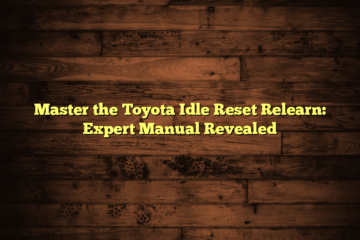Trailer Hitch Loose in Receiver: Secure Your Load with These Expert Tips
If your trailer hitch is loose in the receiver, check the hitch pin or receiver for damage. A loose trailer hitch can lead to unsafe towing conditions.
To fix this issue, inspect the hitch pin for wear and tear, and replace it if necessary. Additionally, ensure the receiver is not damaged or corroded, as this could also cause the hitch to be loose. Proper maintenance and inspections are crucial to prevent any accidents while towing your trailer.
Regularly check your trailer hitch for any signs of wear and address any issues promptly to ensure safe and secure towing.
Signs Of A Loose Trailer Hitch
When it comes to a loose trailer hitch, it’s important to watch out for strange noises or any visible movement. These can be indicators of a problem that needs addressing before using the trailer. Listen for any unusual sounds when you’re driving with the trailer attached. If you notice any rattling or clunking, it could mean that the hitch is not securely fastened. Additionally, keep an eye out for any movement of the receiver while driving – this could indicate that the hitch is not properly fitted and may become detached. Check the hitch regularly to ensure it is properly secured and functioning to keep your towing safe and secure.
Causes Of A Loose Trailer Hitch
A loose trailer hitch in the receiver can be attributed to various causes, including improper installation, wear and tear, or insufficient maintenance. It is crucial to address this issue promptly to ensure safe towing and prevent further damage.
| Causes of a Loose Trailer Hitch | |
| • Wear and Tear | • Incorrect Installation |
Risks Of A Loose Trailer Hitch
A loose trailer hitch in the receiver can pose serious risks and lead to accidents and injuries. The connection between the trailer hitch and the receiver should always be secure to ensure safe towing. When a hitch is loose, it can cause the trailer to sway or even detach from the vehicle, resulting in loss of control and potential collisions. In addition to the danger it poses to other road users, a loose hitch can also cause damage to the vehicle itself. The excessive movement and bouncing of the trailer can put strain on the hitch, receiver, and other towing components, potentially leading to wear and tear or even structural damage. Regular inspection and maintenance of the trailer hitch system are crucial to prevent accidents, injuries, and damage to both the vehicle and the trailer.
Securing A Loose Trailer Hitch
Inspecting the Receiver: Check the condition of the receiver to ensure it is not damaged or worn. Inspect for any debris or rust that may hinder the proper fitting of the trailer hitch.
Using Thread Locking: Apply thread locking adhesive to the shank of the trailer hitch before securing it into the receiver. This will help prevent the hitch from coming loose during use.
Regular Maintenance For Trailer Hitches
Regular maintenance is crucial for trailer hitches to prevent them from becoming loose within the receiver. Ensure the hitch is securely attached and regularly check for any signs of wear or damage to keep your trailer hitch in optimal condition.
| Regular Maintenance for Trailer Hitches |
| Cleaning and Lubricating: Regularly clean the hitch with a brush and soapy water. Inspect for any rust or debris buildup. |
| Tightening Bolts: Check the bolts for tightness to ensure the hitch is secure. Use a torque wrench if necessary. |
Professional Help For Trailer Hitches
If your trailer hitch is loose in the receiver, it’s important to seek professional help in resolving the issue. Start by consulting a mechanic who has experience in trailer hitch installations and maintenance. They can assess the condition of the hitch and recommend the best course of action. Upgrading the hitch may be necessary if it’s worn out or incompatible with your towing needs. Professional guidance will ensure that the hitch is properly secured and aligned, providing safety and peace of mind during towing.
Frequently Asked Questions
How Do You Tighten A Hitch Receiver?
To tighten a hitch receiver, use a hitch pin and clip to secure it firmly in place. Ensure it is properly aligned for a safe towing experience.
Should A Trailer Hitch Wiggle?
Yes, a trailer hitch should not wiggle as it can cause instability. Regular maintenance and adjustments should be made.
Is It Normal For A Trailer Hitch To Be Loose?
Yes, a loose trailer hitch is not normal and can be dangerous. Loose hitches should be tightened immediately to ensure safe towing. Regular inspection and maintenance are crucial to prevent accidents and ensure the hitch is secure.
Why Is My Hitch Wobbly?
There could be a few reasons why your hitch is wobbly. It might be due to loose bolts or improper installation. Another possibility is wear and tear over time. Make sure to inspect and tighten all connections to ensure a secure hitch.
Will A Loose Trailer Hitch Damage My Receiver?
A loose trailer hitch can cause wear and tear on your receiver, leading to potential damage over time.
Conclusion
Ensuring your trailer hitch is secure is crucial for safe towing. Keep an eye on any signs of looseness and address them promptly. Regular maintenance and proper installation are key to avoiding potential accidents. Take the necessary steps to fix a loose hitch problem before hitting the road.
Stay safe out there!



